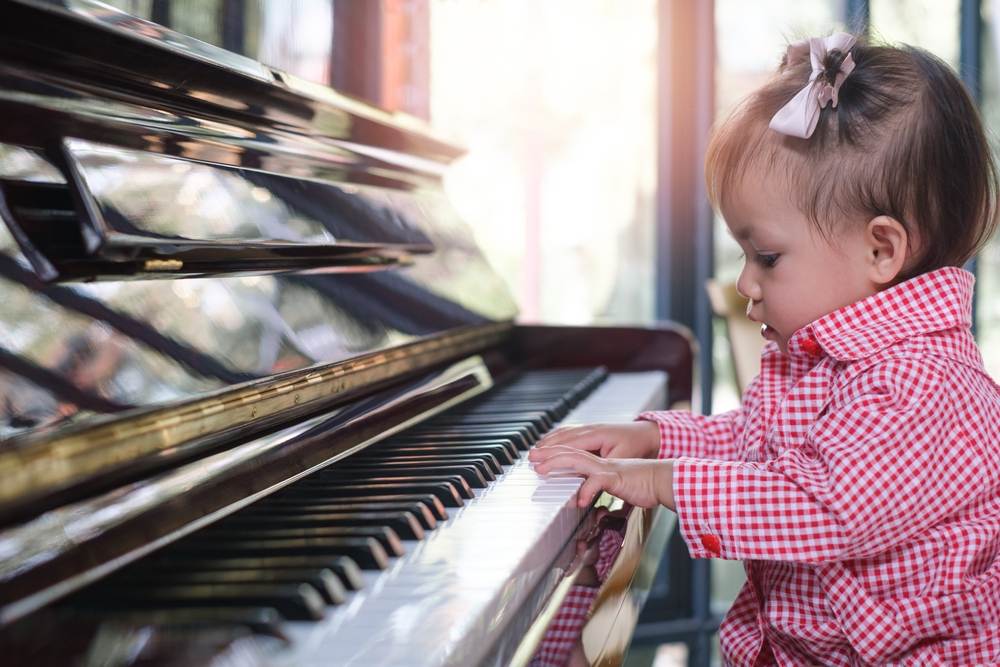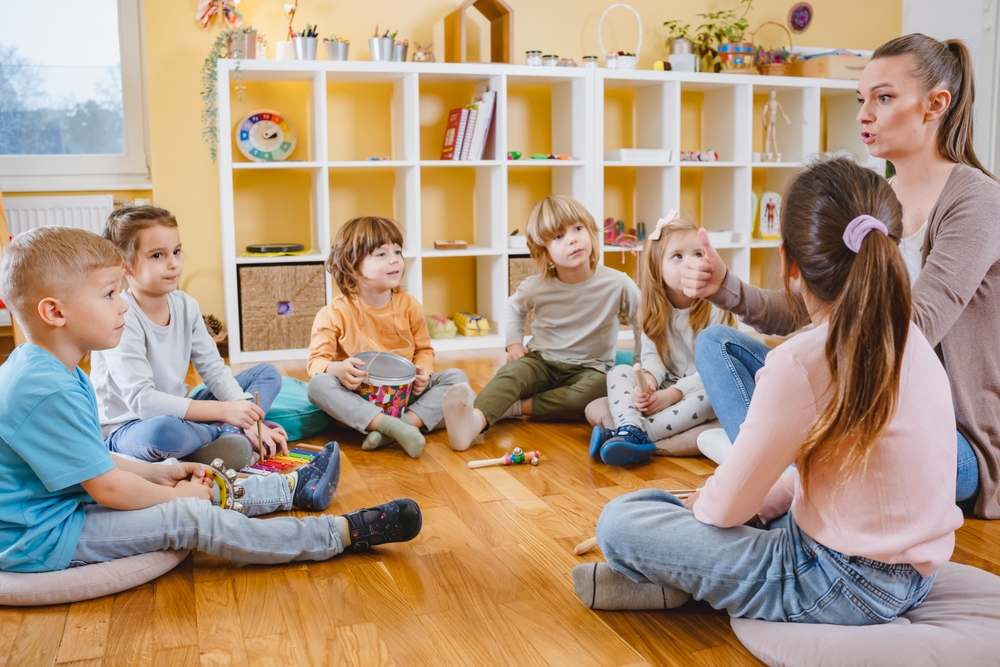
Putting your toddler in music lessons can be a great way to encourage their cognitive, emotional, and social development. Research has shown that music education can help young children improve their language skills, memory, and ability to concentrate. It can also foster their creativity, self-expression, and confidence, as well as teach them valuable social skills such as teamwork and communication. Additionally, music lessons for toddlers can provide children with a fun and engaging way to explore different sounds and rhythms, and they can help children develop a lifelong appreciation for music. Continue on to learn more about how music lessons can benefit your toddler and what parents and children can expect.
How Learning Music Is Beneficial for Children
Learning music provides a wide range of benefits for children, both in their personal and academic lives. Some of the key benefits of music education for children include:
Enhanced Language & Communication Skills
Music education can help children develop their language and communication skills as they learn to understand and express different emotions and ideas through music. This can lead to better reading and writing abilities, as well as improved communication with others.
Improved Cognitive Development
Studies have shown that music education can help improve a child’s cognitive skills, which include memory, attention, and spatial skills. Learning to play an instrument, for example, requires a child to process and remember a lot of information, which can improve their overall cognitive abilities.
Increased Creativity & Self-Expression
Music education can also encourage children to be more creative and expressive. They will learn more about how to create their own music and interpret existing pieces in a personalized and unique way. This can help children of all ages develop a stronger sense of self and improve their confidence.
Improved Social Skills
Music education can also help children develop important social skills, including teamwork, communication, and empathy. As your child grows up, they may choose to play in a band or ensemble, for example, which requires children to work together and support each other. Children can get started on improving their social skills and ability to work with others from a very young age.
What to Expect with Music Lessons for Toddlers
Music lessons for toddlers can vary depending on the teacher and the type of program or class you choose for your family. In general, parents can expect the following when enrolling their toddler in music lessons:
Age-Appropriate Activities
Toddlers have a short attention span and are still developing their fine motor skills, so music lessons for this age group will typically involve age-appropriate activities such as singing, dancing, and playing simple instruments like drums, shakers, or xylophones.
Emphasis on Fun & Play
Toddlers learn best through play, so music lessons for this age group should always be fun and engaging. Teachers may use games, songs, and other playful activities to introduce musical concepts and keep toddlers interested and involved.
Parental Involvement
Many music programs for toddlers will require or encourage parent participation. Parents may be asked to participate in the lessons with their child or to reinforce what their child has learned at home through singing, dancing, or other musical activities.
Basic Music Skills
Even though the focus is on fun and play, music lessons for toddlers can help develop basic musical skills such as rhythm, melody, and pitch recognition. Toddlers may also learn to identify different instruments and sounds as they begin to develop their listening skills.
Socialization & Peer Interactions
Music lessons for toddlers can also provide an opportunity for toddlers to socialize and interact with other children their age. This can help improve their social skills, such as sharing, taking turns, and communicating with others.
When to Start Music Lessons for Toddlers

The ideal time to start music lessons for toddlers will depend on a variety of factors, including the child’s individual interests and abilities and the availability of age-appropriate music programs in the area. Toddlers can begin to benefit from exposure to music at a very young age. Some parents may choose to expose their toddlers to music through informal activities such as singing songs or playing musical games at home. This can help children develop a love of music and an interest in learning more about it. For more formal music lessons, many programs offer classes specifically designed for toddlers as young as 18 months to 2 years old. These classes typically involve simple activities such as singing, clapping, and playing with instruments and are designed to be fun and engaging for young children. Ultimately, the decision to start music lessons for a toddler should be based on the child’s individual interests and abilities, as well as the parent’s goals for their child’s development. It’s important to choose a program or class that is age-appropriate and designed to be fun and engaging for young children.
How to Get Children Started with Music Lessons
Getting children started with music lessons can be a fun and rewarding experience for both the child and the parent. Here are some steps to help get children started with music lessons:
1. Determine your child’s interests: Before enrolling a child in music lessons, it’s important to consider their interests and preferences. Talk to your child about what kind of music they enjoy listening to and whether they have expressed an interest in playing an instrument or singing.
2. Choose an age-appropriate program: There are many music programs available for children of all ages, so it’s important to choose a program that is age-appropriate and designed to meet the child’s needs.
3. Find a qualified teacher: It’s important to find a qualified teacher who has experience working with children and can create a fun and engaging learning environment. Ask for recommendations from other parents or music teachers, and consider private music lessons near you for personalized attention and care.
4. Decide on an instrument: If your toddler begins to show interest in playing an instrument, it’s important to choose an instrument that is appropriate for their age and size. For younger children, instruments such as the piano, violin, or ukulele may be more suitable than larger instruments like the guitar or drums.
5. Create a practice routine: Consistent practice is key to improving musical skills, so it’s important to create a practice routine that works for your child’s schedule and abilities. Start with shorter practice sessions and gradually increase the length as they become more comfortable with the instrument or activity.
6. Encourage and support your child: Learning a new skill can be challenging, so it’s important to encourage and support the child throughout the learning process. Celebrate their successes, and provide constructive feedback and guidance to help them improve their skills.
Fostering a Love of Music
Raising musical children involves creating a supportive environment that encourages a love of music and provides opportunities for children to explore and develop their musical skills. Exposure to music from a young age can help your child become excited to learn music and interested in learning more. Providing access to musical instruments and toys can help children explore and experiment with music. Formal music lessons can help children develop their musical skills and knowledge. Music lessons should be fun and engaging for young children!
Find a music teacher near you with Lessons In Your Home. Fill out our easy contact form or call to get started with a wonderful and qualified music teacher for private lessons in the comfort of your home.
